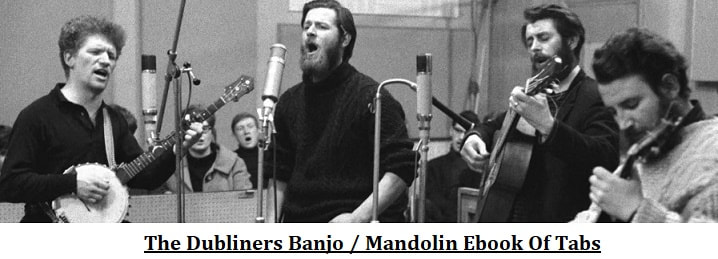Fifteen Men On A Dead Mans Chest Banjo Mandolin Tab
Fifteen Men On A Dead Mans Chest Banjo Mandolin Tab And Sheet Music With Lyrics And Chords In G Major. A Traditional sea shanty.
The sea shanty 'Fifteen Men On A Dead Man's Chest' has been a popular song for centuries, with its catchy tune and intriguing lyrics capturing the imaginations of generations. The origins of this song can be traced back to the 18th century, when it was sung by sailors on long voyages at sea. However, its enduring popularity and cultural significance can be attributed to its portrayal in literature, film, and popular culture. This thesis aims to delve deeper into the history and significance of the song 'Fifteen Men On A Dead Man's Chest,' exploring its origins, symbolism, and impact on society.
The first recorded mention of the song can be found in the novel 'Treasure Island' by Robert Louis Stevenson, published in 1883. In the book, the character Long John Silver sings the song to his fellow pirates, adding a sense of danger and mystery to the already thrilling tale of buried treasure. It is believed that Stevenson may have heard the song during his travels in the Caribbean, where it was a popular tune among sailors and pirates. However, the exact origins of the song remain a mystery, with no definitive author or date of composition.
The lyrics of 'Fifteen Men On A Dead Man's Chest' are both intriguing and cryptic. The opening line, 'Fifteen men on a dead man's chest, yo-ho-ho, and a bottle of rum,' immediately grabs the attention of the listener and sets the tone for the rest of the song. The mention of rum, a highly sought-after commodity among sailors, adds to the sense of adventure and lawlessness associated with the sea. The repeated use of the phrase 'yo-ho-ho' also adds to the infectious and lively nature of the tune, making it easy to sing along to.
One of the most intriguing aspects of the song is its symbolism. The 'dead man's chest' refers to a pirate's treasure chest, often guarded fiercely and believed to be cursed. The 'fifteen men' could represent the crew of a pirate ship, with the addition of the word 'yo-ho-ho' signifying their unity and camaraderie. The mention of a 'bottle of rum' also holds symbolic significance, representing the temptations and vices that come with a life at sea. The lyrics of the song can be interpreted in many ways, making it a versatile and thought-provoking piece of music.
The popularity of 'Fifteen Men On A Dead Man's Chest' has extended far beyond its origins as a sea shanty. It has been featured in numerous films, television shows, and books, solidifying its place in popular culture. One of the most notable adaptations of the song is in Disney's 'Pirates of the Caribbean' franchise, where it is transformed into a rousing anthem for Captain Jack Sparrow and his crew. Its inclusion in the films has introduced the song to a new generation, ensuring its longevity and cultural relevance.
Furthermore, the song has inspired various parodies and adaptations over the years, showcasing its enduring appeal and influence. It has been reworked into children's songs, rap tracks, and even used in commercials, demonstrating its versatility and ability to adapt to different styles and genres. This also speaks to the power of the song's catchy tune and memorable lyrics, which have stood the test of time and continue to resonate with people of all ages.
In conclusion, 'Fifteen Men On A Dead Man's Chest' is a timeless and iconic song that has captured the imaginations of people for centuries. Its origins as a sea shanty, its symbolism, and its impact on popular culture make it a fascinating topic of study. Despite its mysterious origins, the song's enduring popularity and cultural significance cannot be denied, solidifying its place as a beloved piece of music. Whether sung by sailors on a ship or played in a modern-day movie, the song continues to evoke a sense of adventure, danger, and camaraderie, making it a timeless classic that will be passed down for generations to come.
The first recorded mention of the song can be found in the novel 'Treasure Island' by Robert Louis Stevenson, published in 1883. In the book, the character Long John Silver sings the song to his fellow pirates, adding a sense of danger and mystery to the already thrilling tale of buried treasure. It is believed that Stevenson may have heard the song during his travels in the Caribbean, where it was a popular tune among sailors and pirates. However, the exact origins of the song remain a mystery, with no definitive author or date of composition.
The lyrics of 'Fifteen Men On A Dead Man's Chest' are both intriguing and cryptic. The opening line, 'Fifteen men on a dead man's chest, yo-ho-ho, and a bottle of rum,' immediately grabs the attention of the listener and sets the tone for the rest of the song. The mention of rum, a highly sought-after commodity among sailors, adds to the sense of adventure and lawlessness associated with the sea. The repeated use of the phrase 'yo-ho-ho' also adds to the infectious and lively nature of the tune, making it easy to sing along to.
One of the most intriguing aspects of the song is its symbolism. The 'dead man's chest' refers to a pirate's treasure chest, often guarded fiercely and believed to be cursed. The 'fifteen men' could represent the crew of a pirate ship, with the addition of the word 'yo-ho-ho' signifying their unity and camaraderie. The mention of a 'bottle of rum' also holds symbolic significance, representing the temptations and vices that come with a life at sea. The lyrics of the song can be interpreted in many ways, making it a versatile and thought-provoking piece of music.
The popularity of 'Fifteen Men On A Dead Man's Chest' has extended far beyond its origins as a sea shanty. It has been featured in numerous films, television shows, and books, solidifying its place in popular culture. One of the most notable adaptations of the song is in Disney's 'Pirates of the Caribbean' franchise, where it is transformed into a rousing anthem for Captain Jack Sparrow and his crew. Its inclusion in the films has introduced the song to a new generation, ensuring its longevity and cultural relevance.
Furthermore, the song has inspired various parodies and adaptations over the years, showcasing its enduring appeal and influence. It has been reworked into children's songs, rap tracks, and even used in commercials, demonstrating its versatility and ability to adapt to different styles and genres. This also speaks to the power of the song's catchy tune and memorable lyrics, which have stood the test of time and continue to resonate with people of all ages.
In conclusion, 'Fifteen Men On A Dead Man's Chest' is a timeless and iconic song that has captured the imaginations of people for centuries. Its origins as a sea shanty, its symbolism, and its impact on popular culture make it a fascinating topic of study. Despite its mysterious origins, the song's enduring popularity and cultural significance cannot be denied, solidifying its place as a beloved piece of music. Whether sung by sailors on a ship or played in a modern-day movie, the song continues to evoke a sense of adventure, danger, and camaraderie, making it a timeless classic that will be passed down for generations to come.



